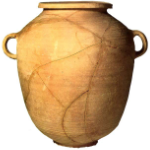
Where do you get the things that make up your own idea of who you are?
And do you control what those things mean?
Are you a Christian? Muslim? Scientologist?
Do you support the Cowboys? The Broncos? The Raiders?
Are you a Democrat? Republican? Green?
Do you drive an American car? a German car? a Japanese car?
Many (maybe most?) people in the United States seem to get a lot of their core identities from affiliation with groups over which they have no real influence: religions, sports teams, political parties, commercial brands.
This is obviously unhealthy.
It means that someone else gets to decide who you are.
If part of your identity is “Republican”, then anyone who can influence what is seen as “a Republican” can control who you think you are.
People building their sense of self from these categories is what makes stereotypes so effective: if I believe that:
- Democrats believe “a’
and:
- I am a Democrat
then it obviously follows that:
- I must believe “a”
And everyone else will also know that, as a Democrat, I must obviously believe “a”.
But it gets worse.
Are you a man? a woman?
Are you gay? or straight?
These labels are even more insidious, because being biologically tied makes it much harder to see how what they mean is constructed by our culture and can therefore be controlled by others as well.
Your body’s sex, and what kind of bodies you find arousing, are simply facts. But what those facts mean in your self-identity? That can be just as malleable as what it means to be “a Green”.
So pay attention to where you get your sense of self from.
If you think of yourself as “a woman”, then anyone who can influence what it means to be “a woman” will be able to influence who you think you are. And strange as it may seem, what it means to be “a man” is just as subject to change as what it means to be “a Christian”.
We are language-using monkeys. We have to use words to describe who we are, to ourselves and to other people.
But we need to be careful what labels we use and how we apply them.
- AIpocalypse: Generative AI Cannot Be Reliable - 2026-02-13
- C’mon Democrats: Zero Votes For Fascism - 2026-02-11
- Digital Sovereignty: Not Just For Countries - 2026-02-09
- Identity Politics: They’re All Doing It
- AIpocalypse: Generative AI Cannot Be Reliable
- You Should Read This: We Should Talk About The Morality of Political Violence
- “History And Tradition”: If We’re Changing Legal Interpretation, Let’s Not Make It Worse
- The Asshole Window: A New Theory Of Societal Collapse

One thought on “Identity: Telling Yourself Who You Are”